Can Dogs Eat Boiled Eggs? Understanding the Benefits and Risks for Your Dog
- 28 Feb 2025 09:32
As a dog owner, it’s natural to wonder about sharing some of your food with your furry friend. Boiled eggs, often considered a healthy snack for humans, might seem like a good option for your dog too. However, before you offer your dog a boiled egg, it's important to understand whether it’s safe, the benefits it may provide, and any risks involved. In this article, we’ll explore if dogs can eat boiled eggs, how they can benefit from them, and how to safely incorporate them into your dog’s diet.
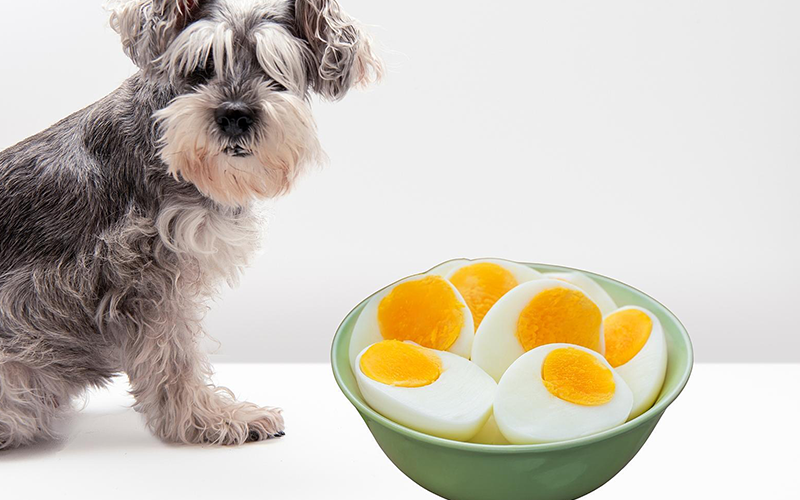
Are Boiled Eggs Safe for Dogs?
Yes, dogs can eat boiled eggs, and they can be a nutritious addition to their diet when served in moderation. Eggs are packed with protein, essential fatty acids, vitamins, and minerals, making them a healthy treat for your dog. When boiled, the egg is cooked thoroughly, making it easier for dogs to digest compared to raw eggs, which may carry risks like Salmonella.
However, just because eggs are safe doesn’t mean they should be given to dogs in large quantities. Moderation is key, as too many eggs can lead to an imbalance in your dog’s diet, particularly if they are already getting enough protein and fats from their regular meals.
The Nutritional Benefits of Boiled Eggs for Dogs
Boiled eggs offer several nutritional benefits that can support your dog’s health. Here are some of the key benefits:
High-Quality Protein: Eggs are an excellent source of high-quality protein, which is essential for your dog’s muscle development, tissue repair, and overall health. Protein is a major part of a dog’s diet, especially for active or growing dogs.
Healthy Fats: Boiled eggs contain healthy fats, including omega-3 and omega-6 fatty acids, which are important for maintaining a healthy coat and skin. These fats also support brain function and overall cellular health.
Vitamins and Minerals: Eggs provide a range of vitamins and minerals, including vitamin A, vitamin B12, riboflavin, folate, and selenium. These nutrients are important for supporting your dog’s immune system, vision, energy levels, and cell function.
Amino Acids: Eggs contain all nine essential amino acids that dogs need for growth and development. These amino acids help maintain muscle mass, repair tissue, and support overall health.
Digestibility: Boiled eggs are easy for dogs to digest, especially when compared to raw eggs. The cooking process denatures the protein, making it easier for dogs to absorb the nutrients.
Risks and Considerations of Feeding Boiled Eggs to Dogs
While boiled eggs can be a nutritious treat, there are some risks and considerations to keep in mind:
High in Calories: Eggs are relatively high in calories, so if you give your dog too many, they may start to gain weight. It's essential to account for the calories in the eggs as part of your dog’s overall daily caloric intake to avoid overfeeding.
Eggshells: While the egg white and yolk are perfectly safe for your dog, the eggshells should be handled with care. Some dogs may benefit from consuming crushed eggshells, as they provide additional calcium, which is essential for bone health. However, it’s important to crush the eggshells thoroughly to prevent any sharp pieces from injuring your dog’s digestive tract.
Allergic Reactions: Though rare, some dogs may have an allergy to eggs. If your dog has never had eggs before, it’s a good idea to start with a small amount and observe for any signs of an allergic reaction, such as vomiting, diarrhea, or itching. If you notice any of these symptoms, discontinue feeding eggs and consult your veterinarian.
Overfeeding: Giving your dog too many eggs can lead to nutritional imbalances. While eggs are a good source of protein and fat, they should not replace other essential nutrients in your dog’s diet. Always serve eggs as an occasional treat and not as a regular meal.
Raw Eggs (Not Recommended): While boiled eggs are safe, raw eggs should be avoided. Raw eggs can pose a risk of foodborne illnesses like Salmonella, both for your dog and for humans. Additionally, raw egg whites contain a protein called avidin, which can interfere with biotin absorption, leading to potential deficiencies if consumed in large quantities over time.
How to Safely Serve Boiled Eggs to Your Dog
If you decide to give your dog boiled eggs, here are some tips to ensure it's done safely:
Boil the Egg Thoroughly: Always make sure the egg is fully cooked to avoid the risk of Salmonella or other bacterial infections. Boil the egg until both the white and yolk are firm, and avoid serving raw or undercooked eggs to your dog.
Remove the Shell (Optional): While some dogs can safely eat eggshells (especially if crushed), many pet owners prefer to remove the shell to prevent choking hazards or sharp pieces. If you do choose to give your dog eggshells, crush them finely and sprinkle them on their food for added calcium.
Serve in Moderation: A small boiled egg (or half an egg for smaller dogs) can be a healthy, protein-packed treat for your dog. Serve eggs as an occasional treat rather than a regular part of your dog’s daily diet to avoid overfeeding.
Watch for Reactions: As with any new food, introduce boiled eggs gradually and monitor your dog for any adverse reactions, such as digestive upset or changes in behavior. If everything goes well, you can continue offering them as a treat from time to time.
Avoid Seasonings: When preparing boiled eggs for your dog, avoid adding any seasoning, salt, or butter. Dogs don’t need added salt in their diet, and some seasonings (like garlic and onion) can be toxic to them.
Signs Your Dog May Have an Adverse Reaction to Eggs
If you’re concerned that your dog might have an allergic reaction or other adverse effect after eating a boiled egg, watch for the following signs:
Vomiting
Diarrhea
Lethargy
Itchy skin or rashes
Swelling, especially around the face or ears
Changes in behavior or appetite
If any of these symptoms appear, stop feeding eggs immediately and consult your veterinarian.
Conclusion: Can Dogs Eat Boiled Eggs?
In conclusion, boiled eggs are safe for most dogs in moderation and can be a nutritious addition to their diet. They provide high-quality protein, healthy fats, vitamins, and minerals, all of which can benefit your dog’s overall health. However, eggs should be served in moderation, and you should always ensure that they are cooked thoroughly to avoid any potential risks.
As with any treat, moderation is key to maintaining a balanced diet for your dog. If you’re ever unsure about introducing new foods into your dog’s diet, consider using PettureX, an AI-powered pet health assistant that offers 24/7 consultations and personalized guidance on nutrition and health. With PettureX, you can make informed decisions about your dog’s diet and ensure their well-being is always prioritized.
Related
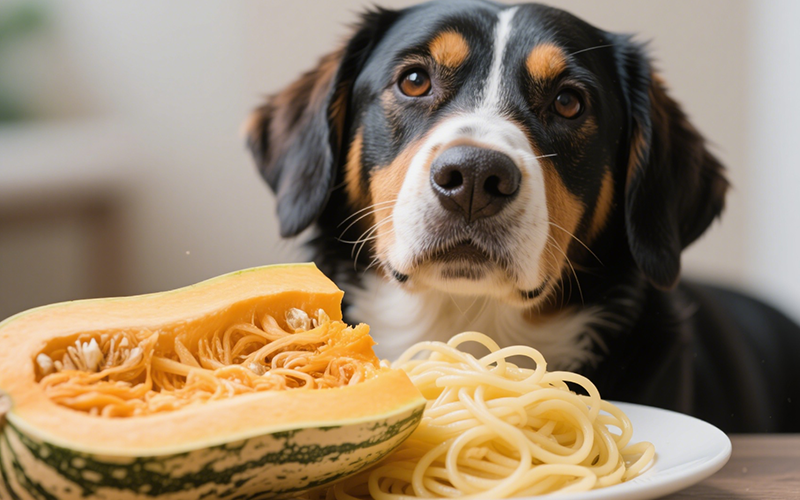
Squash Smarts: Can Dogs Eat Spaghetti Squash? A Vet-Approved Guide
- 26 Apr 2025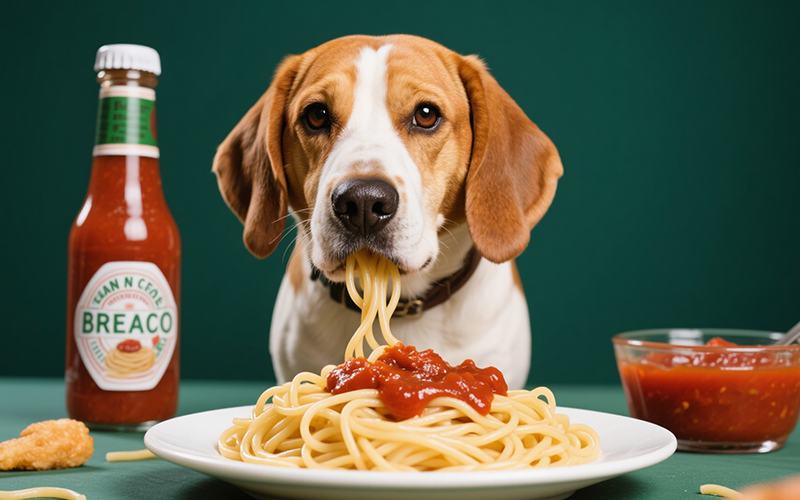
Sauce Inquiry: Can Dogs Eat Spaghetti Sauce Safely? Why Vets Advise Against It
- 26 Apr 2025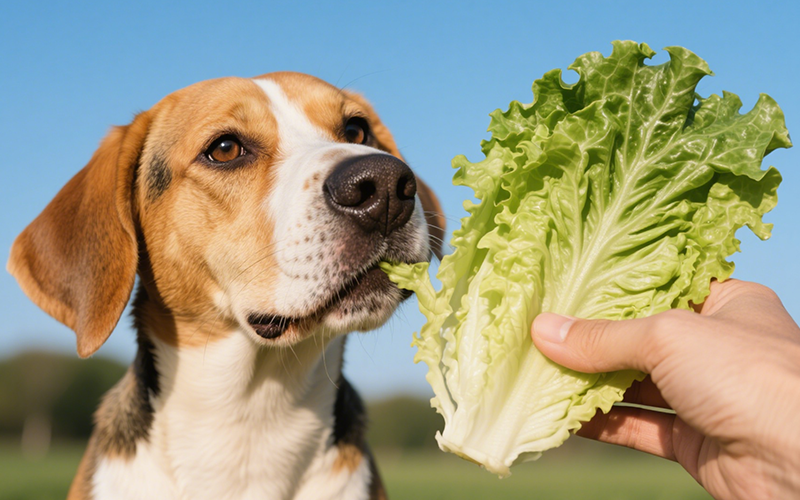
Crunchy Greens for Canines: Can Dogs Eat Romaine Lettuce Safely?
- 25 Apr 2025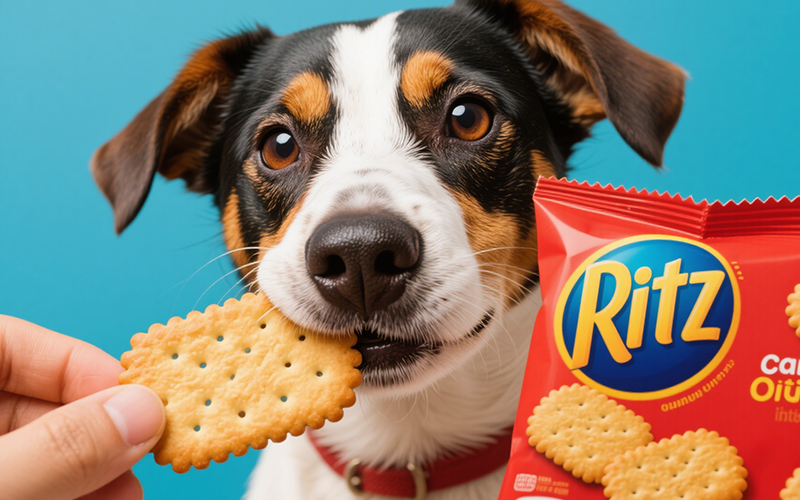
Ritz Crackers for Dogs? Why Vets Say No to This Common Snack
- 25 Apr 2025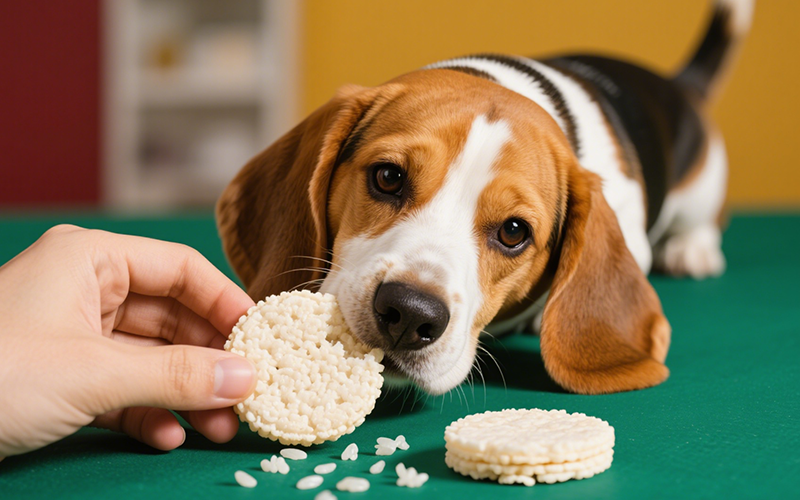
Rice Cakes for Rover? A Crunchy Question: Can Dogs Eat Rice Cakes Safely?
- 24 Apr 2025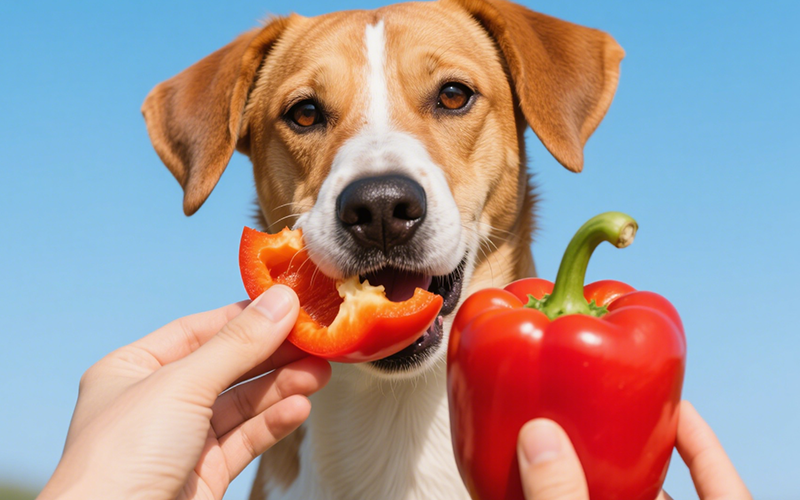
Crunchy & Colorful: Can Dogs Eat Red Bell Peppers Safely? A Vet-Approved Guide
- 24 Apr 2025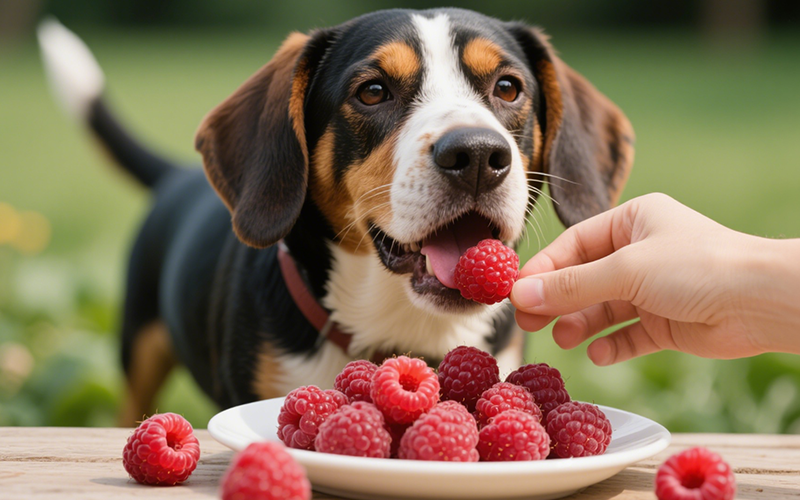
Raspberries for Rover? A Vet's Guide to This Berry Good Treat for Dogs
- 23 Apr 2025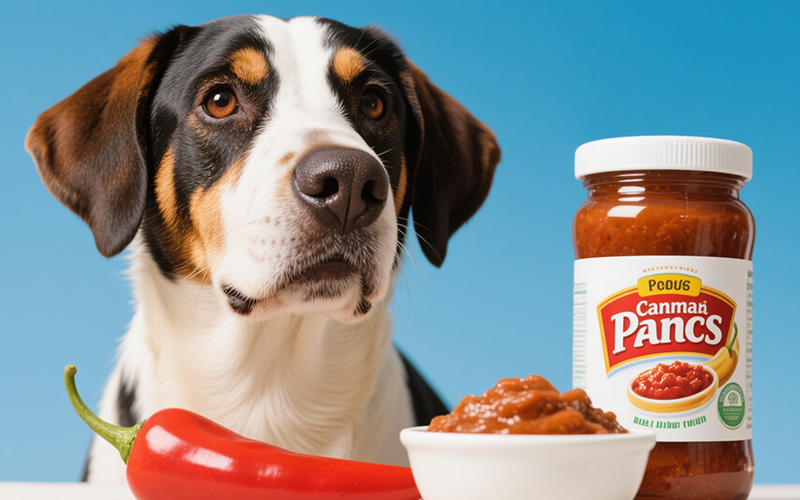
Ranch Dressing Dilemma: Can Dogs Safely Indulge? A Deep Dive into Why It's a Bad Idea
- 23 Apr 2025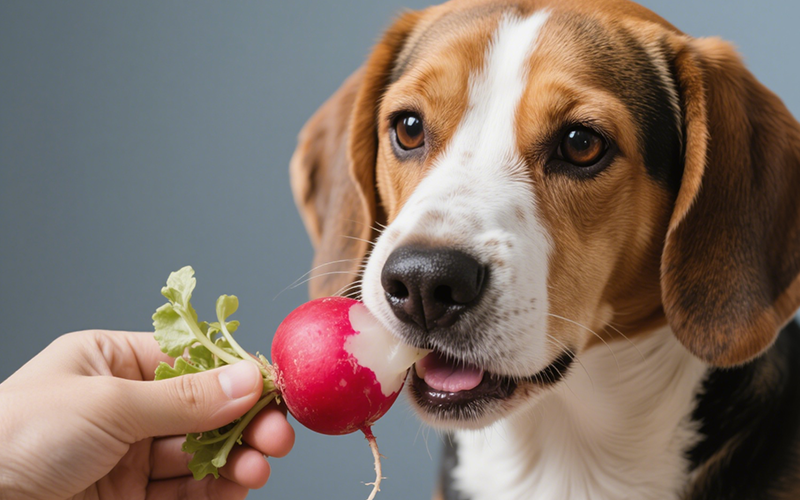
Radish Bites for Your Buddy? A Vet-Reviewed Guide on Whether Dogs Can Eat Radishes
- 22 Apr 2025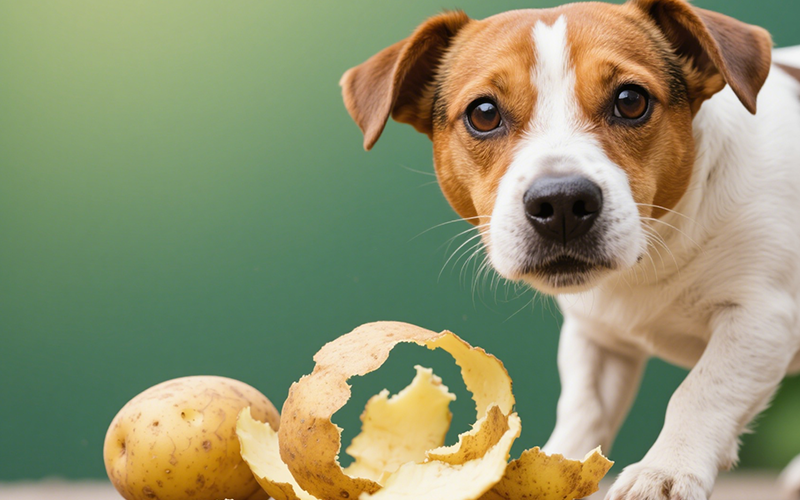
Potato Peels for Pooches? Unpeeling the Risks and Facts for Dog Owners
- 22 Apr 2025
